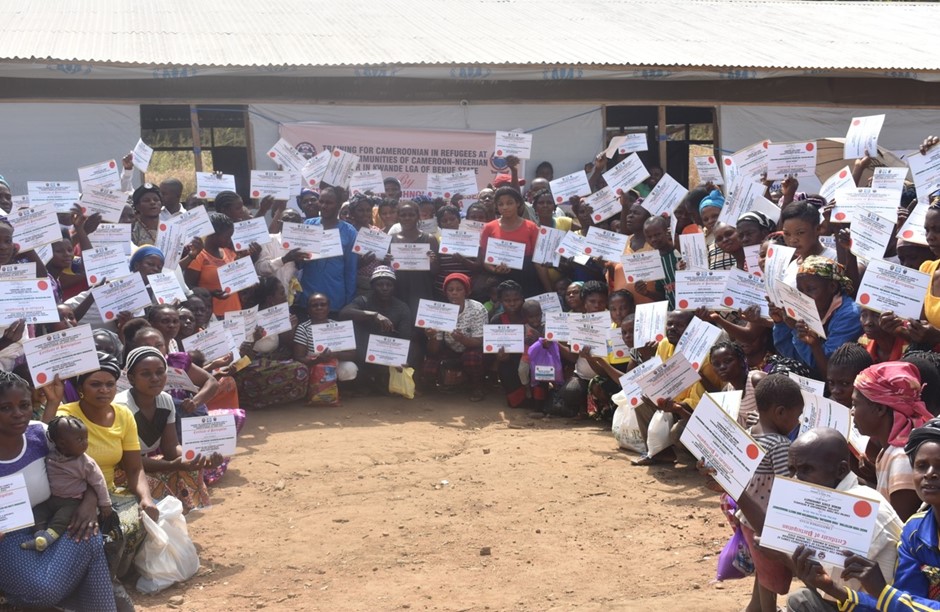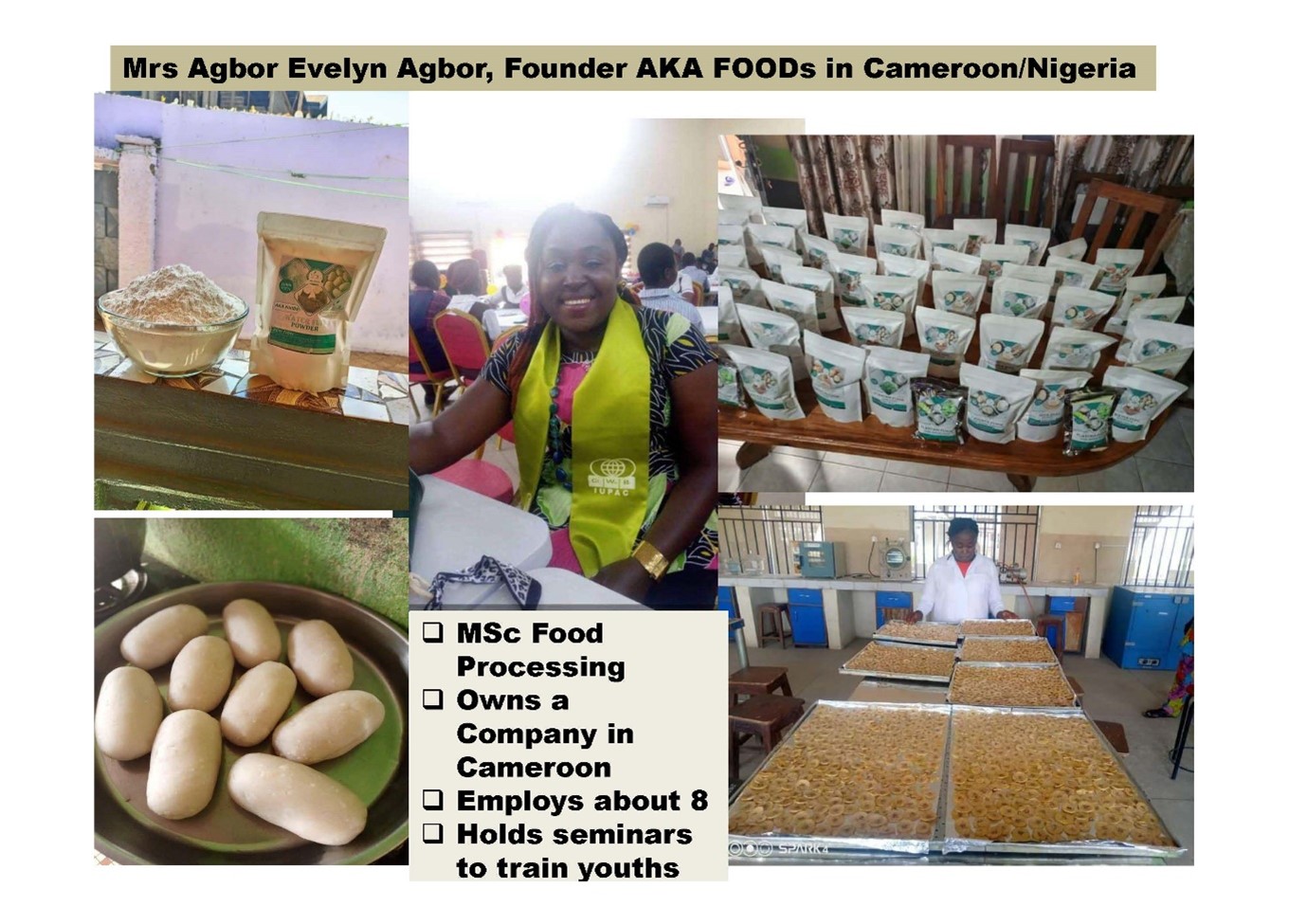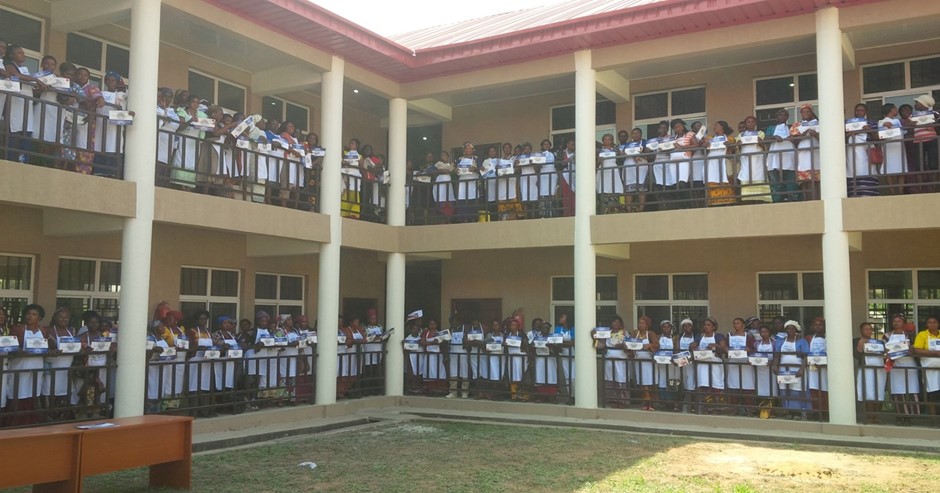The global refugee population, reported by the United Nations Refugee Agency (UNHCR) at 36.4 million, primarily resides in low- and middle-income countries, including Africa. Despite their significant presence, access to higher education for refugee youth remains severely limited. UNHCR data indicates that only 7% of refugee youth globally are enrolled in higher education, with even lower enrollment rates in sub-Saharan Africa, while according to UNESCO’s findings, only 1% of refugee students worldwide have access to scholarships for higher education. These stark figures underscore the urgent need to address the systemic barriers hindering refugee education across the continent.
Against this background, the Center for Food Technology and Research (CEFTER) emerges as the beacon of hope, implementing life-changing interventions to transform the lives of refugees. Hosted by the Benue State University, Makurdi, Nigeria, under the Africa Higher Education Centers of Excellence for Development Impact (ACE Impact) project, CEFTER is addressing the challenges associated with refugee education and making a substantial difference in the lives of refugee students.
Aligned with the ACE Impact project’s target of strengthening the capacity of the 53 participating centres to address regional challenges, and deliver quality training and applied research, CEFTER identified a key challenge based on its geographical location and proximity to Cameroon. This revolves around the lack of higher education access for Cameroonian refugees who seek asylum in Nigeria. Since 2016, CEFTER has been actively spearheading initiatives to tackle this obstacle and make a tangible difference in the lives of Cameroonian refugee students.
CEFTER’s Trailblazing Interventions in Supporting Refugee Education
Established in 2014 to address the challenges of post-harvest losses of food crops in the West and Central Africa sub-region, CEFTER has been promoting teaching, research, and extension in post-harvest sciences. This Centre of Excellence focuses on enhancing agricultural production and promoting the exposure of its students to industrial processing of food and food product development. The primary thematic disciplines of CEFTER include the control of post-harvest food losses, physiology and management, food science, preservation and processing technologies and the socio-economic aspect of food research and technology.
With a huge influx of asylum seekers from Cameroon crossing over to Nigeria, issues around food access, food safety, nutrition safety and general health and safety were identified as critical by CEFTER as part of its needs assessment of the refugee population in Nigeria. The UNHCR’s registry of Asylum Seekers in Nigeria put the official figure of registered Asylum Seekers from Cameroon at 20,485 in 2018, with the 2023 data reporting an estimated figure of about 87, 000.
The Center for Food Technology and Research strategically intervened in the identified issues related to food, by taking its short-courses program, already being run across the country, to the refugee population to ensure their overall wellbeing. Short courses related to food handling, food safety, food processing and packaging to promote the reduction of losses and safe handling of food were offered to this group.

Prof. Barnabas Achakpa Ikyo, the Centre leader for CEFTER reports that a total of 480 registered refugees have been trained by CEFTER and issued with certificates of competency in the respective capacity building areas. In certain instances, participants have been equipped with start-up machinery and essential raw materials to alleviate financial obstacles associated with start-up capital and to facilitate the launch of their food processing businesses immediately after the training.
Enhanced Refugee Employability through Skills Training
The skills training initiatives by CEFTER has significantly bolstered the employability of the refugees within the culinary industry and other food-focused sectors, making them economically independent, and empowering them to rebuild their lives. Moreover, several beneficiaries have successfully established their own enterprises, specializing in the processing and sale of various food products, thereby actively contributing to the local economy. Notably, the training programs on food processing have yielded remarkable outcomes in minimizing food losses and wastage, leveraging the abundant raw materials such as cassava and plantain available in farming communities, within which the refugee camps are located. These training sessions, led by a team of specialized experts and high-level delegates from CEFTER, including the center’s leadership team, continue to be tailored to address evolving needs. For instance, amidst the challenges posed by the COVID-19 pandemic in 2021, the center swiftly responded by equipping a cohort of refugees with skills in producing high-demand products like hand sanitizers.
Alumni Impact: CEFTER Empowers Refugee Futures Through MSC and PHD Degrees
Mrs. Agbor Evelyn Agbor, an MSC (Food Processing) graduate of CEFTER is a shining example of the impact these capacity building initiatives have had on the pathway to refugee self-sufficiency. Her food processing company, AKA FOODs, in Cameroon and Nigeria has not only offered her a job and a source of income, but employed other youths. “I also regularly hold seminars to train youth groups in the community on various issues – including food processing and packaging” – she said. Mrs. Agbor is currently a PhD student at the Centre for Food Technology and Research, Nigeria. Her trajectory underscores the profound impact of CEFTER’s degree programmes on refugee empowerment.

As one of several refugees excelling following their participation in degree programmes at CEFTER, Mrs. Agbor’s story reflects the broader commitment of the Centre to empower refugee youth through education. Talented youth from refugee communities were actively encouraged to pursue higher education opportunities offered by the Centre. Through competitive selection processes, 39 refugees from Cameroon have embarked on their academic journeys at CEFTER, with 34 pursuing MSC degrees (comprising 17 males and 17 females) and 5 undertaking PhD programs (including 3 males and 2 females). This commitment to empowering refugee youth through education underscores CEFTER’s dedication to fostering inclusive and impactful academic pathways.
Leveraging Strategic Partnerships in Empowering Refugees and Internally Displaced Persons
CEFTER’s interventions in building the capacity of the refugees, have been possible through its continued engagement with various development partners to support its specialized interventions. Currently, its main sources of funding the refugee MSC and PhD students have been the ACE Impact Project – funded by the World Bank, AFD, and the Federal Government of Nigeria. The DAAD also acknowledged CEFTER’s unique model and offered scholarship to some students for a three-year duration.
Beyond the support to refugees from its neighboring country, CEFTER also partners to implement various strategic interventions to internally displaced persons, especially children. Under this scheme, CEFTER offers products of its spin off factory, such as their soya milk yoghurt, cassava-based biscuits, and other nutrition dense foods to this group of people.
Overall Impact made by CEFTER on the Refugee Population in Nigeria
Through its targeted interventions and holistic approach to addressing the challenges faced by refugees, the Centre for Food Technology and Research (CEFTER) has had a profound impact on both the refugee population and the communities in which they reside. By leveraging its expertise in post-harvest sciences and food technology, CEFTER has not only provided essential training and educational opportunities but has also catalyzed economic empowerment and improved public health outcomes.
CEFTER’s commitment to capacity building is exemplified by its robust Masters and PhD programs, which have provided advanced training and education to refugee students from Cameroon. By offering opportunities for higher education, CEFTER has empowered these individuals to acquire specialized skills and knowledge in food processing and technology, positioning them as leaders in their respective fields. The successful graduation of 39 refugees, including Mrs. Agbor Evelyn Agbor, demonstrates the transformative impact of such capacity-building initiatives in fostering self-sufficiency and socio-economic development.
One of the most significant achievements of CEFTER’s intervention has been the marked reduction in food poisoning cases within refugee camps. Through targeted training programs on food handling, safety, and processing techniques, CEFTER has equipped refugees with the necessary knowledge and skills to mitigate foodborne illnesses and ensure the safety of food supplies. This has not only improved the overall health and well-being of the refugee population but has also alleviated the burden on healthcare facilities and resources.
Key Challenges Faced by CEFTER and Recommendations to Deepen Its Support to Refugee Students
One of the primary challenges CEFTER faces is the difficulty in managing the unexpected high turnout of participants during training sessions. While the center, for instance, could plan for only 50 attendees, they often end up accommodating over 100 individuals, straining the available limited resources. A lack of proper documentation for refugee students is another challenge the centre faces. This includes issues related to verifying their academic credentials, residency status, and eligibility for scholarships or educational programs, inhibiting their access to higher education opportunities. Moreover, funding initiatives aimed at supporting start-ups established by refugee beneficiaries pose a challenge due to limited financial resources. While CEFTER strives to empower refugees to establish their own businesses, securing adequate funding to sustain and scale these initiatives remains a persistent challenge.

To address the challenge of limited resources and capacity, CEFTER continues to prioritize building strategic partnerships with other organizations, governments, and philanthropic entities, as collaborative efforts are key in helping to sustain and expand the academic support provided to refugees. ‘Institutions with aligned vision and willing to collaborate with us to deepen our support to the refugee community, are encouraged to get in touch with us to support scale up CEFTER’s intervention to this critical group’ – appealed Prof. Barnabas Achakpa Ikyo, the Centre leader for CEFTER.
Looking ahead, CEFTER aims to collaborate with relevant stakeholders to organize safe return and settlement programs for refugees who wish to return to their home countries voluntarily. These programs will offer support in reintegrating into their communities, accessing education and employment opportunities, and rebuilding their lives.
Again, CEFTER remains available to be engaged by other stakeholders to enhance and diversify the CEFTER model to cater to a broader range of needs within refugee communities. This could involve expanding the scope of training programs to include additional skill sets and areas of expertise relevant to refugee livelihoods and economic empowerment.
Most importantly, increased funding is essential to enable CEFTER to reach more refugee beneficiaries and expand its impact. The center therefore invites international donors, government agencies, and private sector partners to support educational initiatives, start-up ventures, and capacity-building programs for refugees.
Overall, the Centre for Food Technology and Research (CEFTER) aims to continue to deepen its impact on the lives of refugee communities in Nigeria and beyond, through collaboration and sustained efforts.
